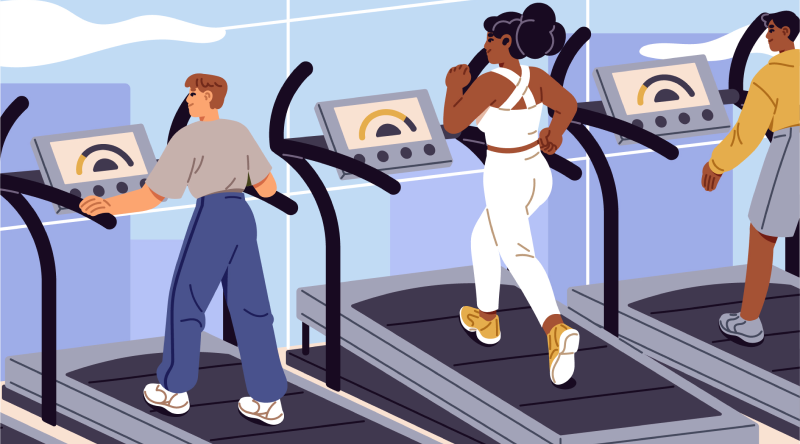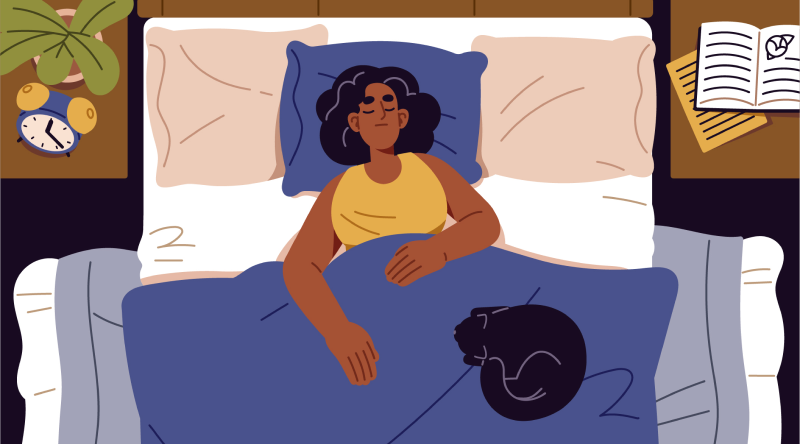Daily life with cTTP
You might find that cTTP has a big emotional impact on you. For example, you may feel anxious about your health or frustrated about not being able to take part in certain activities.1 Also, living with cTTP can mean a lot of changes in your daily life, as well as to your future.1
There are things you can do to help manage daily life with cTTP and stay as healthy and as active as possible. While the list below is a good start, you can speak to your doctor or nurse about how cTTP affects you. They may give you more information and support to overcome specific challenges.

Follow a healthy lifestyle
Although severe and sometimes life-threatening episodes (acute TTP events) can occur without reason, we know that in other cases, certain factors can increase their likelihood.2 Eating a nutritious diet, getting enough sleep as well as physical activity, and practicing good hygiene to prevent an infection might help you avoid an acute TTP event.
Consider the activities you enjoy
Living with a blood disorder may affect your participation in certain activities such as contact sports that can place you at risk of injury.3 Your care team may be able to support you in keeping up with your social life and activities that are important to you as much as possible.
Write down a plan of your activities for the day
Doing this can help you feel more in control of your day and focus on what matters most to you.
Think of ways to break up tasks across different days to save your energy
For example, you could cook a few meals and put them in the freezer to eat on days when you do not have the energy to cook.
Thinking about, or adapting to, changes
Understanding how cTTP impacts you and preparing for change might help you manage feelings of uncertainty, giving you back a sense of control, and allow you to feel more organized and confident in living with cTTP. You may find the information below helpful:

Responding to how you feel
You may have days when you feel tired or less able to think as clearly and quickly as usual.1 It is important to listen to your body and only do what you are able to do. Responding to how you feel and being flexible with your schedule can help you make the most of the days when you have more energy.
Looking to the future
Thinking ahead about how you would like the future to look and how you might deal with any potential challenges can help you to feel more in control. Consider some of the challenges or concerns you have about the future. What actions could you take to overcome them? Being prepared can help you feel less stressed if a situation does arise. This is called “if/then” planning.
For example:
- "If I feel too tired at work, then I will speak to my manager about taking time off."
- "If I am worried about my symptoms getting worse, then I will contact my doctor."
- "If I feel overwhelmed by a busy day, then I will write down the tasks I need to do and ask family and friends for the help I need."
Part of this planning also includes travelling or attending specific events. Consider talking to your doctor or nurse about your plans so they may assist you in preparing and making a plan in case of an emergency.
Setting aside some “me time”
Planning your day can help you schedule some “me time” where you can specifically take a moment to pause, reflect, and recharge. This “time-out” could be used simply to lie down for a moment or two or to prepare a nice relaxing bath. Click here for some more ideas.
Focusing on what you can control
Many causes of stress are beyond our control. But by focusing on what is within your control, you can improve how you cope. Rather than trying to change unhelpful thoughts, think about what you can do that would be most beneficial for you. This may be taking time to rest, talking to family and friends, speaking to your doctor or nurse, or doing something you enjoy.